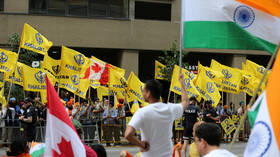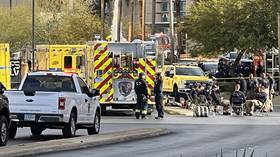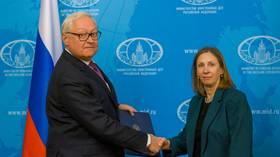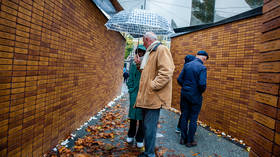New Delhi resuming e-visas for Canadians – foreign minister
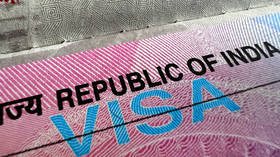
New Delhi has resumed e-visa services for Canadian citizens, two months after halting them due to what it said were security threats to diplomats and consular staff posted in Ottawa, Indian Foreign Minister Subrahmanyam Jaishankar has confirmed on Wednesday.
India stopped visa services to Canadians on September 21, days after Canadian Prime Minister Justin Trudeau said his government had “credible intelligence” of India’s “potential” involvement in the assassination of Hardeep Singh Nijjar.
The Sikh activist had been designated as a terrorist by India, and was killed in June near Vancouver. New Delhi vehemently denied allegations of involvement, asking for evidence to be provided.
The diplomatic row led to both countries expelling high-profile diplomats responsible for intelligence from their respective capitals. Shortly afterward, India stopped processing visas for Canadians. It also ordered Canada to recall 41 of 62 diplomats posted in the country, citing the need for parity. According to New Delhi, the number of Canadian diplomats posted in India was “significantly higher” than the Indian presence in Canada.
In October, India allowed a partial resumption of visa services for Canadians in an apparent move towards de-escalation.
On Tuesday, India’s Foreign Minister Subrahmanyam Jaishankar discussed the issue with his Australian counterpart Penny Wong, who was in New Delhi for the second India-Australia 2+2 ministerial dialogue.
Australia is a part of the ‘Five Eyes’ intelligence-sharing alliance that also includes the US, UK, Canada and New Zealand. Trudeau’s allegations were based on surveillance of Indian officials and intelligence received from Ottawa’s partners in the alliance, who later urged New Delhi to cooperate in an ongoing investigation into Nijjar’s killing.
Speaking with the media, Jaishankar said that he had communicated New Delhi’s views about space being given to “extremism” and “radicalism” in Canada to his Australian counterpart, stressing it as a key reason for the spat. The Indian minister said it was important that Australia “gets our perspective on the issue.”
“As Quad partners, we would continue to work towards rules-based international order,” Jaishankar said. “We will support freedom of navigation in international waters, promote connectivity, growth and security for all while respecting the territorial integrity and sovereignty of all states,” he added.
New Delhi has accused Ottawa of granting asylum to individuals facing serious terrorism charges in India and allowing them to operate freely from Canadian soil. India has accused Canada of hosting at least nine separatist organizations which seek to create a state called ‘Khalistan’, which would encompass areas within India’s Punjab state.
Earlier this month, New Delhi raised security concerns with Canadian authorities after Sikhs for Justice (SFJ), a US-based organization that is banned in India, threatened to target Air India flights traveling between the two countries. In 1985, pro-Khalistan extremists bombed Air India flight 182, killing all 329 people on board.
Where India Meets Russia – We are now on WhatsApp! Follow and share RT India in English and in Hindi
